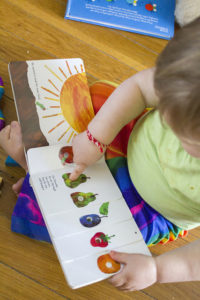Baby Safety Month – There are many safety tips on the Au Pair in America website.

In honor of Baby Safety Month, here are some more specific baby tips:
- If you must leave the baby alone for a few moments, be sure she is safely in a crib or play pen.
- Check condition and sturdiness of toys. Discard any with sharp edges or that are broken or falling apart.
- Check clothing for loose buttons and remove strings.
- Is baby’s pacifier still in good condition? Be sure it isn’t coming apart. Never use strings to attach the pacifier to baby’s clothes or crib.
- Where do you set baby’s carrier when she’s in it? Not on the counter or any high surface, please. Babies can wiggle and tip themselves over.
- Stroller check. If your stroller is collapsible, be sure latches are secure before putting baby in. Always check that your child’s arms are out of the way when reversing handle directions so they won’t get pinched. Be sure to use that safety strap. Don’t hang overloaded or heavy bags on the handle of the stroller, as this may cause it to tip over.
- Can you name the 12 most common choking foods for kids under five? Popcorn, hot dogs, chunks of meat, raisins, ice cubes, chunky peanut butter, peanuts (nuts of any kind), hard candy, grapes, raw carrots, potato chips and corn chips.
- Don’t leave toddlers alone while eating; if they begin to choke, you need to be nearby to assist.
- Never leave a child unattended in the bathtub. If the phone rings, let the machine get it, or bring a cordless phone into the bathroom with you. Wait until baby can sit alone to give baths in the tub. It’s easier in the sink until then.
- Enroll in an infant/child CPR and first aid class. This will be a valuable investment of your time, and Au Pair in America will pay for it.
Photo: Lisa Rosario


 Being an au pair is an important role in a child’s life. When you are caring for a young child up to 45 hours per week, there are lots of opportunities to help them learn language. Many host parents are eager for their children to be exposed to foreign language. If this is true of your host parents, you can try the suggestions below, in both English and your native language.
Being an au pair is an important role in a child’s life. When you are caring for a young child up to 45 hours per week, there are lots of opportunities to help them learn language. Many host parents are eager for their children to be exposed to foreign language. If this is true of your host parents, you can try the suggestions below, in both English and your native language.